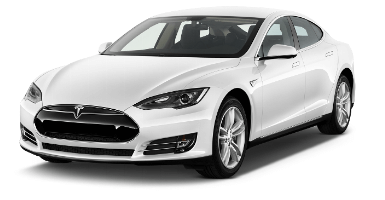
Sometimes no matter what you do your car just won’t start in the morning. So why does it happen? What to do in such a situation? Keep on reading to find the answers.
Imagine that you are running late for work on Monday in the dead of winter, and nothing happens when you try to start your automobile. Your car won’t start in the morning. Your first coherent, frustrating thought would be that it’s a Monday, and you have gotten into this fix!
Instead of attending your morning meeting with a cup of coffee and a sandwich, you skip breakfast and are frantic to catch a cab; make apologetic calls to your team to reschedule your meeting.
Many people face this common issue, especially those in colder climates. So, don’t worry if your car seems sluggish during winter mornings; it happens quite frequently.
Cars and the cold climate don’t get along too well. Low temperatures can make your car battery produce less current, which makes it harder for your engine to start in the morning. Additionally, the cold can prevent your engine oil from flowing as it should, thus putting additional stress on the battery. When it happens you should try the troubleshooting mentioned in this article and if you still face the same issue then you should get the help of a car repair shop to diagnose your car engine.
Sometimes the car won’t start in the morning immediately because of the accumulated dirt and dust from overnight parking or the freezing weather. Understanding the causes of why cars frequently have trouble starting as the temperature lowers can help prevent problems.
This blog addresses the effects of cold weather on cars and ways to fix them.
When it’s cold, engine oil thickens and doesn’t flow as easily around the engine. As a result, pumping through the engine block is more challenging, putting a more significant load on the car battery. This may lead to a non-starter if the battery is already low on power.
If you drive an old vehicle, you may experience wintertime carburetor problems. Carburetors are especially vulnerable to cold weather because their small nozzles can clog and prevent moisture from evaporating, leading to ice build-up.
If your car was made in the last 20 years, you shouldn’t be concerned because most modern vehicles do not use carburetors. However, if you operate a vintage car, be aware that the carburetor may malfunction during winter.
In an extremely unlikely scenario, moisture in the fuel lines can freeze and result in a fuel blockage, preventing the engine from starting. Since fuel lines are delicate and prone to ice blockage, it frequently happens there. Drivers of diesel vehicles must be aware of diesel “gels” in the cold, which can take longer than usual to start the engine.
The slower chemical reaction that occurs on a cold day than on a warm one causes car batteries to produce less electrical current. Starting problems can result from the fact that cold batteries don’t provide as much power as warm batteries do.
It might not be pleasant if your vehicle doesn’t start. A failing starter or a fading battery are two common causes of complex starter issues. However, it may still add to the confusion if your car struggles to start even after sitting overnight.
The fuel injection system in modern vehicles depends on high pressure; if it isn’t set up and maintained, things won’t function as they should. Low fuel pressure is one of the most frequent causes of the car not starting despite sitting overnight. Other than this, there may be three other major reasons:
For a healthy fuel and air mix, the fuel injectors in your car need to spray the appropriate amount of fuel. Therefore, any change in pressure or even the spray angle could be problematic. While a good filter will aid in preventing blocked injectors, these obstructions can still form over time and limit fuel pressure.
The fuel filter prevents impurities and debris from entering the engine with the fuel. It can also lower the fuel pressure if it’s clogged. The vehicle may occasionally splutter or stall and struggle to accelerate if the fuel filter is clogged.
The fuel pump transfers fuel from your car’s gas tank into the engine, where it can ignite when combined with air and enter the cylinders. The fuel pressure can be too low if the pump isn’t operating as it should. Lower gas mileage and a whining sound are other warning signs of a faulty fuel pump.
It can be challenging when a car doesn’t start in the morning, especially if you have a deadline to meet. What can be done if this happens? Let’s understand.
All car parts run on electricity, including the heater, radio, and headlights. We know from above that when the car gets cold, it produces a low electric current. You might need to switch everything off for your car to start ultimately. Allow your car to run for some time after it starts before turning on the other components.
If your battery shows any indications of dust or corrosion, check and clean it. You might need to unplug the battery to do this. Use a toothbrush with a concentrated solution of baking soda and water. This will improve the battery’s performance.
To start your car, slightly depress the clutch while turning the key. This will reduce the battery’s work and make it easier to start your automobile.
Your battery may be under a lot of stress and hence, would not be able to provide enough power to start your vehicle. You can use a dipstick to check the oil level in such situations. If you discover it is low, top it off before attempting to start the vehicle.
This is the last choice if none of the other alternatives works. However, only jumpstart your car if you are confident in your ability; otherwise, you risk damaging your vehicle and yourself. If you are not confident about jumpstarting the car, then a mechanic’s inspection would be the best option.
Since the cold weather results in low electricity production, saving some electricity by shutting off devices that are powered by electricity can be quite beneficial. A little information goes a long way in giving you the best results. Try the following hacks to start your car in the morning:
If none of those earlier methods works, you should take your automobile in for maintenance.
Cars and cold don’t go well together. You are probably frustrated if you complain that your car won’t start in the morning. But many people face this regularly, especially in colder climates.
Low temperatures can make your vehicle produce less current, making it much more difficult for you to start it in the morning. In addition to slowing engine oil flow, the cold can also stress the battery more.
Regularly top your fuel tank with oil and turn off all electrical operating components of your car before starting it. Try jumpstarting your car. If nothing works, it is best to consult a mechanic before it ends up in severe damage.
Fill out the contact form and we will call you as soon as possible discuss events, membership or any general enquiries.
